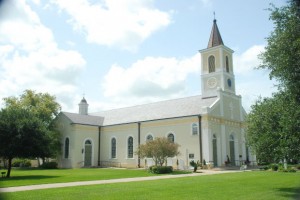 WASHINGTON — A commission of Christian denominational leaders and non-profit organizations submitted a report this week to a prominent Republican Congressman in an effort to urge Congress to take steps to stop the IRS from muzzling the political speech of churches.
WASHINGTON — A commission of Christian denominational leaders and non-profit organizations submitted a report this week to a prominent Republican Congressman in an effort to urge Congress to take steps to stop the IRS from muzzling the political speech of churches.
The Commission on Accountability and Policy for Religious Organizations sent the report on Wednesday to Senator Charles Grassley of Iowa, who is known for investigating the extravagant lives of high-profile televangelists.
“Acknowledging the issues and challenges associated with the prohibition, Senator Charles Grassley asked ECFA to lead an effort to provide input from the religious and broader nonprofit sector in this important area of the law,” Chairman Michael Batts wrote in an introduction to the report. “ECFA, in turn, formed the Commission on Accountability and Policy for Religious Organizations, an unprecedented effort that involves the robust engagement of leaders from a diverse cross-section of the religious and broader nonprofit sector.”
Batts says that the Commission believes the report presents a “rational and feasible approach” to amending current IRS regulations that prohibit pastors and other non-profit ministries from speaking out about political candidates.
“The vagueness in official guidance related to the law chills permissible speech, causes confusion among nonprofit organization leaders, and makes the law difficult for the IRS to administer,” the report, entitled Government Regulation of Political Speech by Religious and Other 501 (c)(3) Organizations, outlines. “For some faith communities, engagement in political communications is inextricably steeped in their history and culture. That will not change. The IRS will not (and should not) enforce the prohibition in such faith communities en masse.”
It also notes that a number of churches have violated the rule–for example, in regard to the support and promotion of Barack Obama by the African American community–and yet have gone unpunished.
“The report shows that black churches have, for lack of a better word, gotten away with it for many years,” said Erik Stanley, senior legal counsel for the Alliance Defending Freedom (ADF), who helped to advise the Commission in the compilation of the report. “Simply put, this gets the IRS out of the pulpit.”
ADF says that it would like to see the Johnson Amendment struck down in the courts. The amendment, passed in 1954 and introduced by then-Senator Lyndon Johnson, states that churches may not “participate in, or intervene in (including the publishing or distributing of statements), any political campaign on behalf of or in opposition to any candidate for public office.”
While the amendment does not specifically prohibit speech on topics that may be construed as being “political,” such as homosexuality and abortion, ADF contends that it has often been interpreted that way by the IRS. It asserts that churches have refrained from speaking on certain societal topics out of a fear of losing their tax exempt status, and launched the Speak Up Movement in 2008 to urge churches to take a stand.
“When the church is silent, the culture suffers,” Stanley said. “The church is integral to the moral stability of a society. Every day that pastors are intimidated into silence on issues like life, liberty, the family, and marriage is another day the cultural erosion continues unchecked.”
Grassley has yet to respond to the published report.
Become a Christian News Network Supporter...


